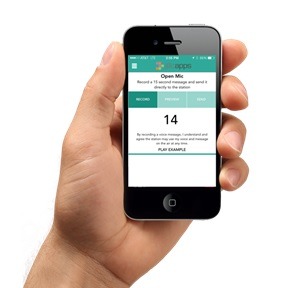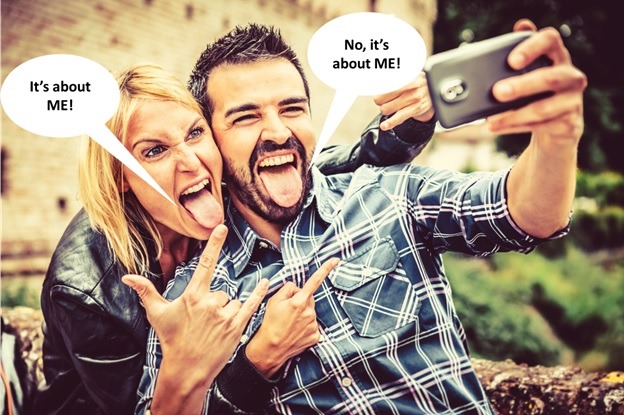Yesterday, we talked about the need for celebrities from all fields – movies, sports, TV, and of course, radio – to develop that coat of armor. Because at any point in time, regular folks can take off on you – on any number of social channels or web portals. Or in the case of Robert Feder’s blog, in the “comments” section where hundreds of fans spouted off with vitriol and furor over “The Battle of the Steves.”
But there is an “other side” to this topic. Because not only are consumers empowered to say whatever they like about whomever whenever, some also are communicating that they’re not going to allow attacks from celebrities either.
Everyone who works in radio’s C-suites or air studios probably wrote or received a memo this week, focusing on the legal case involving that Kansas City woman who got mixed up in a Google search with an actual porn star and the misunderstanding ended up on the air. The morning show in question didn’t attack her maliciously – and yet, the suit generated $1 million in damages in her favor. While even the plaintiff expressed surprised at the outcome, it is clear that there may be a shift taking place, not all that different from the tremors that radio felt after the Janet Jackson/Justin Timberlake “wardrobe malfunction” snafu.
And quietly, many had to be thinking that this Kansas City incident could have occurred in any market, and on anyone of hundreds of radio stations around the country. Like a tornado that skips your block or an airplane crash on the day after you flew, there was a collective – and nervous – sign of relief among many broadcasters this week.
The truth is, regular folks are empowered, and some aren’t going to sit on the sidelines any longer. In many ways, the so-called “Me Generation” – the not-so-positive label for Baby Boomers – might be a much better descriptor for modern-day consumers. After all, isn’t that what Snapchat, “selfies,” Facebook, and other digital detritus are really all about?
Starting with Survivor and moving into American Idol and its many spinoffs, the entire emphasis of Reality TV is its glorification of non-celebrities – just plain folks. From Real Housewives to the Jersey Shore to The Bachelor, and even the Kardashians, there’s an endless amount of interest in people like us.
And that’s all been heightened and amplified by social media, and the belief that everyone is important – not just the famous.
Recently, we watched a woman on Facebook attending a Tigers game who inadvertently got on camera because of a foul ball that landed near her seat. Her friends sent her a screen cap of the TV coverage, she immediately shared it socially, and that was her focus the rest of the game.
“I’m on TV.”
Those may be the three biggest words that can impact a consumer’s life in our society. And its effect on our radio brands is both good and bad.
 We have the ability to reflect our fans’ collective enthusiasm for music, politics, and sports with our personalities that present this content. We have the opportunity to shine the light on the audience, giving them a voice on their favorite stations. Apps that include our “Open Mic” feature, for example, allow listeners to record their voices or actual videos and instantaneously send them to the station for curation. This is a great way to give them a voice on their favorite stations for everything from shout-outs to jokes to opinions.
We have the ability to reflect our fans’ collective enthusiasm for music, politics, and sports with our personalities that present this content. We have the opportunity to shine the light on the audience, giving them a voice on their favorite stations. Apps that include our “Open Mic” feature, for example, allow listeners to record their voices or actual videos and instantaneously send them to the station for curation. This is a great way to give them a voice on their favorite stations for everything from shout-outs to jokes to opinions.
But it cuts both ways. Consumers aren’t sitting still and it’s become almost fashionable to be offended or disrespected at one time or another. More and more, fans have a digital thin skin – and now they have the tools and legal precedent with which to push back.
In the past, they sat on their hands. Today, they have the power to hurt a local station, a much-loved personality, and a well-meaning broadcast company, while sullying an entire industry.
A live mic for a four hour show is a big responsibility, and it just got heavier. Now, it becomes more essential for on-air talent to think before blurting, while relying more and more on others in the studio – sidekicks and producers – to hit the brakes. The “dump button” might be your best friend.
These changes in the fan/DJ relationship just made the difficult of entertaining and informing every day even more challenging because spontaneity is the lifeblood that drives many shows.
Awareness, cognizance, and mindefulness of the new “ME rules” is just the next chapter in the game of radio.
Be careful out there.
- Media And Technology In 2025: Believe It Or Not! - April 18, 2025
- In Radio, You Just Never Know - April 17, 2025
- The Secret To Making A Great Podcast (And Great Radio) - April 16, 2025





Leave a Reply